Infographic: Which countries buy the most Russian weapons?
Russia is the world’s second-largest arms exporter: India buys one-quarter of those weapons followed by China, Algeria, Egypt and Vietnam.
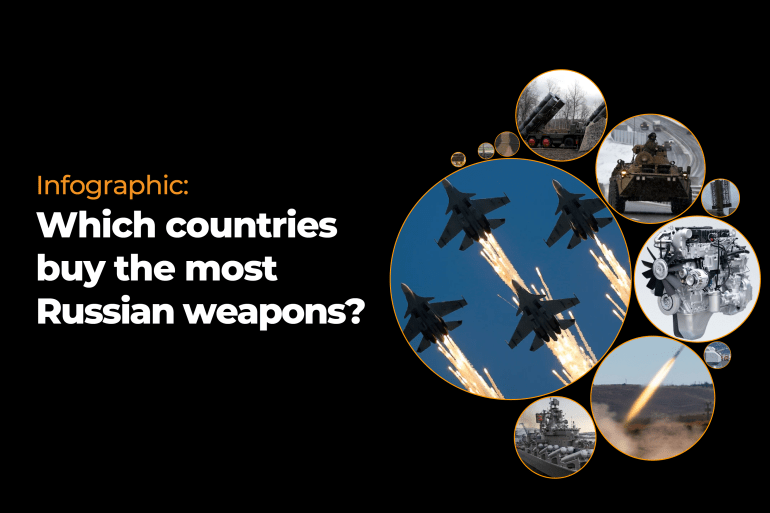
Russia is the world’s second-largest arms exporter, behind the United States, accounting for roughly 20 percent of global weapons sales. Between 2016 and 2020, Moscow sold $28bn of weapons to 45 countries.
Russia exports nearly 90 percent of its arms to 10 countries. Its biggest customer, India, bought 23 percent of Russia’s weapons for some $6.5bn over the past five years. Half of India’s total arms imports, 49.3 percent, come from Russia.
Keep reading
list of 4 itemsMapping Israel-Lebanon cross-border attacks
Eid Mubarak: Hear greetings in different languages
When is Eid al-Fitr 2024 and how is it celebrated?
China is the second-largest buyer of Russian weaponry at $5.1bn over the same period followed by Algeria ($4.2bn), Egypt ($3.3bn), and Vietnam ($1.7bn), according to the Stockholm International Peace Research Institute (SIPRI).
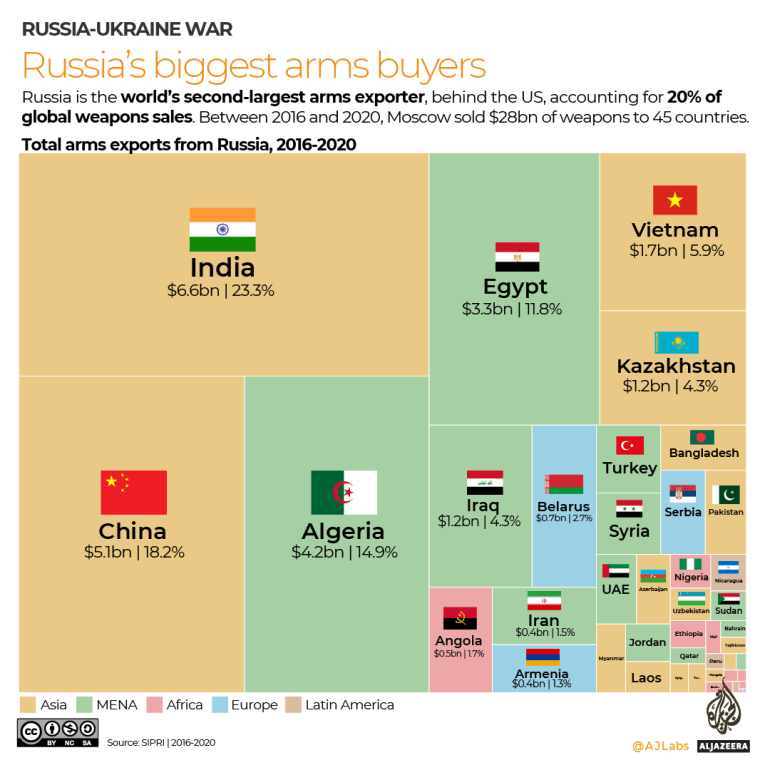
The weapons Russia sells
Russia exports a variety of weapons including planes, engines, missiles, armoured vehicles and air defence systems.
Aircraft make up nearly half (48.6 percent) of Russian arms exports. Between 2016 and 2020 Russia delivered about 400 fighter jets including the Sukhoi and MiG family of jets, to at least 13 countries. India bought at least half of them. India is also one of only six countries in the world that operate nuclear-powered submarines it has on lease from Russia.
While a lot of Russia’s weapons are upgrades to their Soviet-era arsenal, it is increasingly developing more advanced systems, including the S-400 surface-to-air missile defence system which has been sold to China, India, Syria and Turkey. Several other countries have expressed interest in purchasing the long-range mobile systems, which cost about $400m per unit.
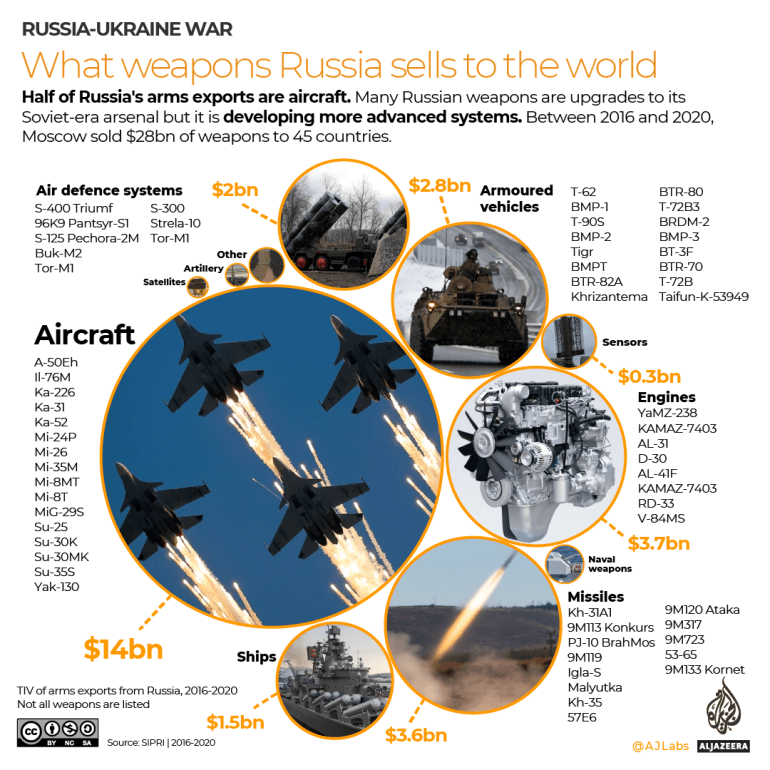
AK-47: World’s most prominent weapon
The most famous Russian weapon is the AK-47, or Kalashnikov.
Developed by Soviet army general Mikhail Kalashnikov in the 1940s, the cheap, durable and easy-to-use assault rifle is the standard infantry weapon for more than 100 countries. The AK refers to “Avtomat Kalashnikova”, Russian for automatic Kalashnikov, and the number “47” represents the year the rifle was developed.
There are an estimated 100 million AK-47s, or similar variants, around the world, making it the most widely owned assault rifle in the world.
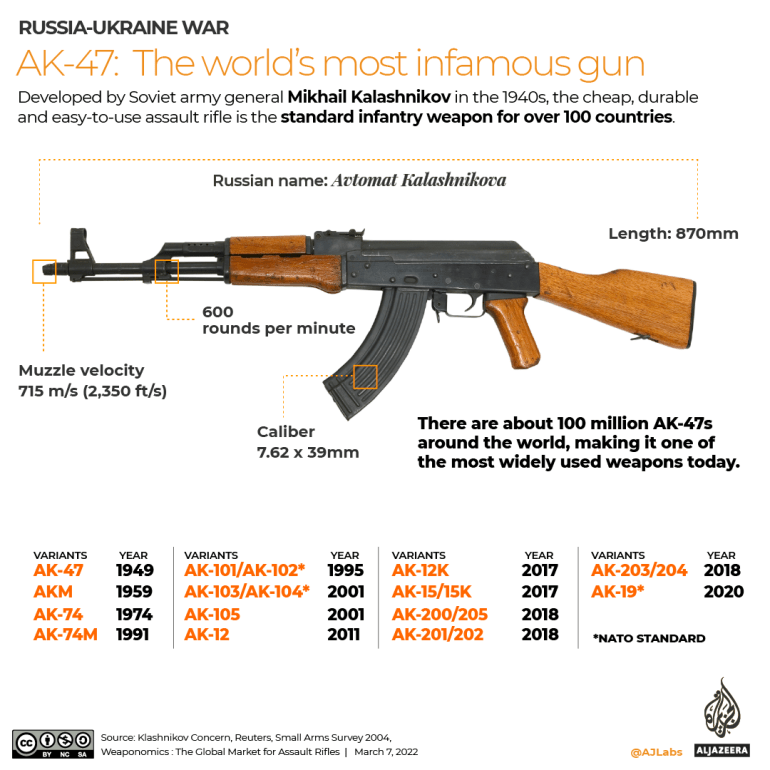
The world’s biggest military spenders
In 2020, the US spent $778bn on its armed forces – the largest military spend in the world and more than the next 10 highest-spending countries combined, according to SIPRI.
China ranked second at $252bn, followed by India at $73bn, Russia at $62bn, and the United Kingdom at $59bn.
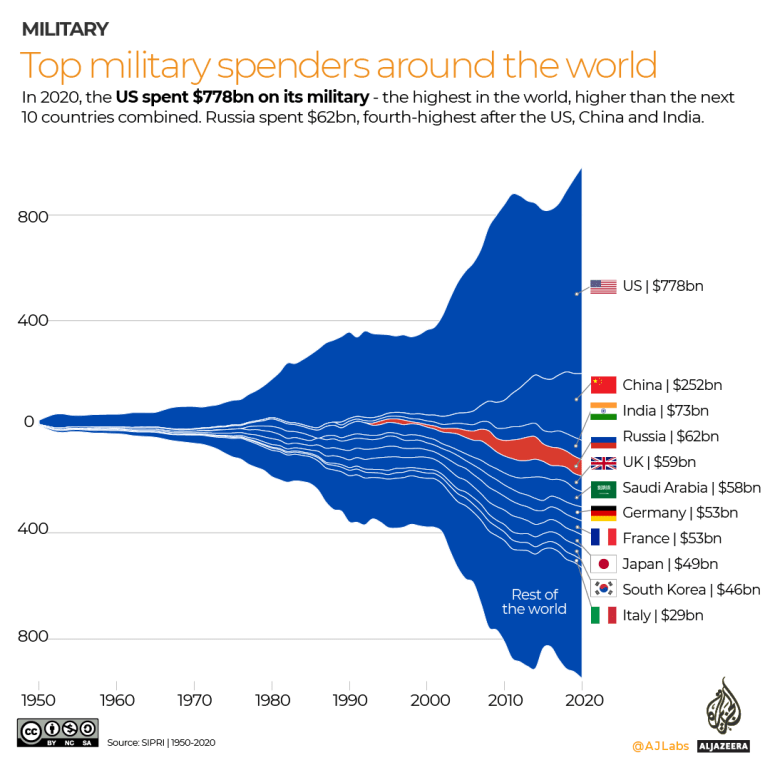
Russia’s military spending
Russian military expenditure has grown significantly over the past three decades. In 2020, Moscow spent about $62bn (4 percent of its GDP) on its military.
Russia’s arms industry consists of some 1,300 companies employing about two million people. The largest of these companies is Rostec, founded in 2007 by President Vladimir Putin.
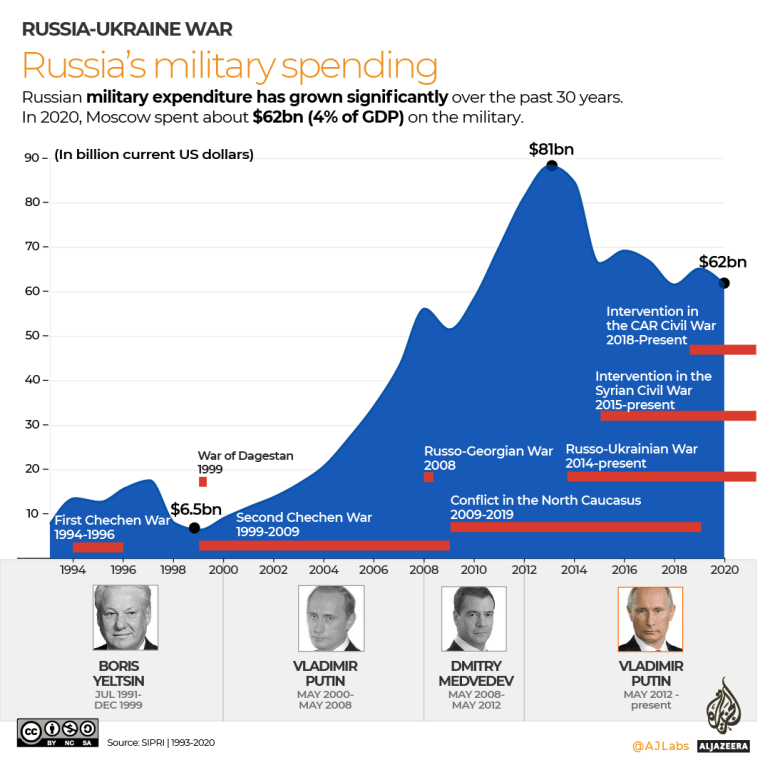
Russia has been in a number of conflicts since it became a federation after the dissolution of the Soviet Union in December 1991. In 1994, the Kremlin launched an offensive against Chechnya, a breakaway republic bordering Georgia, in an effort to crush its separatist leadership but were defeated after a 20-month battle.
Three years later, Russia launched the second Chechen War to retake the republic. It laid such a harsh siege on Grozny, Chechnya’s capital, that the United Nations called it “the most destroyed city on Earth”.
In 2014, Russia invaded Ukraine and annexed Crimea. A month later, pro-Russian separatists began capturing territory in the Donetsk and Luhansk regions of eastern Ukraine.
In 2015, Russia formally entered the Syrian civil war on the side of President Bashar al-Assad, and its heavy weaponry managed to shift the dynamics on the ground. The war, which has displaced tens of millions and killed hundreds of thousands, is now in its eleventh year.
In 2018, the government of the Central African Republic – embroiled in civil war – invited Russia to send military contractors to train its armed forces. UN experts have repeatedly expressed concerns over reports of “grave human rights abuses” by the mercenaries. Russia has rejected these claims.